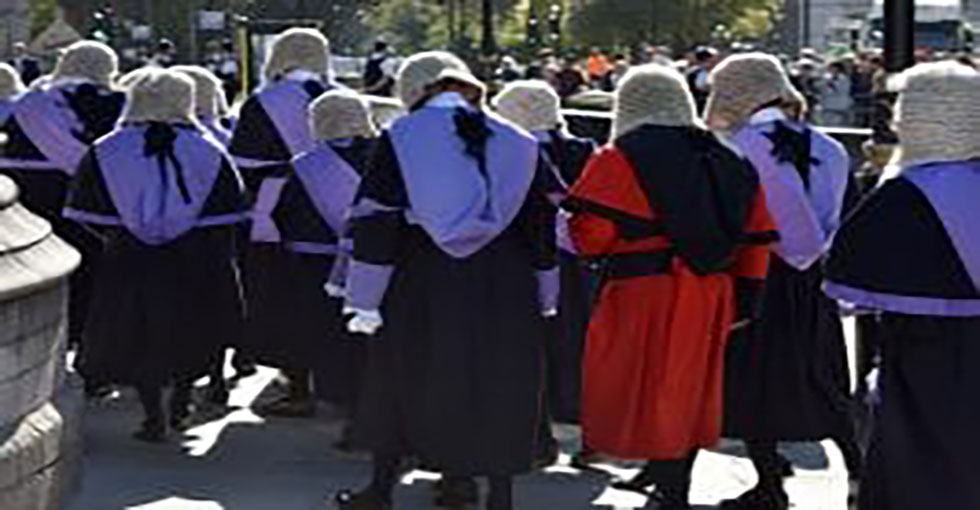Introduction
We are living and practising in a time without precedent. The need for social distancing and the self-isolation of judges and staff mean that the court is prioritising “urgent” applications and trials. There is no overarching guidance for all cases in the Business and Property Courts in Birmingham (or other hearing centres) with matters being dealt with on a case-by-case basis. The Chancery Guide, which was drafted in normal times, provides little guidance as to what constitutes “urgency”.
So what does this mean in practice bearing in mind that which was previously “urgent” may not be considered to be such in the current situation? More specifically, on what basis do you assess the importance of your case and if appropriate, seek to persuade the court that your case needs to be dealt with urgently?
We consider some general points and then specific areas of law in which further available guidance may be of assistance.
Broad Principles
The Collins English definition of “urgent” is something “requiring or compelling speedy action or attention”. That is reflected in the (presently analogous) case law in relation to expedited trials, but with the important caveat that speedy resolution necessarily involves prioritising one case over others.
As Lloyd J said in Daltel Europe Ltd (In Liquidation) v Makki [2004] EWHC 1631 (Ch) at [13]: “Expedition…can only be justified on the basis of real, objectively viewed, urgency of the case, which justifies, first of all, giving preference in the allocation of court time to this case over the other cases in the court’s list…” (emphasis added)
And as Laddie J said in Ifone Ltd v Davies [2005] EWHC 1504 (Ch) at [10]: “In deciding what to do, the court must also bear in mind the needs of other litigants. At the end of the day it is being asked to put one case ahead of all other cases in the list and to give it preferential timetabling treatment” (emphasis added).
Neither the desire for commercial certainty (Eli Lilly & Company v Human Genome Sciences Inc [2012] EWHC 2857 (Pat) at [52]) nor the risk that delay will prejudice enforcement in a general sense (Daltel at [17]) will justify the prioritising of a case. So the core point is that a litigant has to justify the special feature(s) about their case that justifies it being heard before others, rather than being adjourned. Self-induced urgency caused by delay on the part of a litigant or their representative may well not be good enough.
General Categories
On 3rd April 2020, national “Civil Listing Priorities” guidance was issued for County Court work (https://www.judiciary.uk/coronavirus-covid-19-advice-and-guidance/#civilguidance) which included a list of “Work which must be done”. Categories therein potentially translatable to Business and Property Court work are: (1) committals, (2) Freezing Orders,[1] (3) injunctions and return days for ex parte injunctions, (4) enforcement work that does not involve bailiffs, such as third-party debt orders, (5) any applications in cases listed for trial in the next three months, (6) any applications where there is a substantial hearing listed in the next month, (7) trials where parties agree that it is urgent and (8) appeals in all these cases.
Injunction applications will still need to be time sensitive. A useful test may to be ask whether, by analogy with ex parte applications, delay until normal court service resumes would “defeat the purpose of the injunction” (National Commercial Bank Jamaica Ltd v Olint Corpn Ltd [2009] 1 WLR 1405).
Insolvency
Para 4.1 of the Temporary Insolvency Practice Direction (https://www.justice.gov.uk/courts/procedure-rules/civil/rules/insolvency_pd) (“TIPD”) states that: “In the immediate term, it is essential that the court’s resources and time are preserved for genuinely urgent applications. To that end, all applications, petitions and claim forms (save for petitions for winding-up and bankruptcy to be heard before an ICC Judge sitting in the Rolls Building in London) currently listed for hearing prior to 21 April 2020 are adjourned” (emphasis added). Para 7 introduces a temporary remote listing procedure for winding-up and bankruptcy petitions.
The TIPD has, with effect from 8th April 2020, been applied with variations to the Midland, Western and Wales Circuits (“TIPD – Midlands”). Para 7 of the TIPD is applied with minor changes of terminology. Further, by para 6 of the TIPD – Midlands, in addition to matters which “of their nature are urgent”, the following matters are presumed to be urgent unless the court in a particular case considers otherwise:
- Applications for relief from the consequences of s.127 and s.284, IA 1986;
- Petitions to wind up a company in the public interest;
- Applications made pursuant to s.17, CDDA 1986;
- Applications made pursuant to s.216, IA 1986.
Further indications of what may (and may not) be considered urgent at the present time can be seen by comparing the intended list of applications for the ICC Judges interim list (pre-Covid) (see Chancery Guide at 25.28) and the Guidance Note for “deemed urgent” work before the ICC Judges issued by Chief ICC Judge Briggs on 7th April 2020:
| Interim applications list |
Guidance Note |
| Injunction to restrain presentation of a petition to wind up a company or to restrain advertisement of such a petition |
Applications made pursuant to s.17, CDDA 1986 |
| Administration order |
Applications made pursuant to s.216, IA 1986 |
| Appointment of a provisional liquidator |
Public interest winding-up petitions |
| Search and seizure orders pursuant to s.365, IA 1986 |
Applications to convene a meeting for a members’ scheme of arrangement |
| Appointment of an interim receiver pursuant to s.286, IA 1986 |
Capital reduction claims |
| Validation orders |
Cross-border merger claims |
| Other applications that are urgent, such as those made pursuant to s.125, CA 2006. |
|
That each case is to be considered individually is demonstrated by the decision of Snowden J in Re Carluccio’s Ltd [2020] EWHC 886 (Ch). Administrators had until 13th April 2020 to decide the position of employees. The Court determined the application on 9th April 2020 with written reasons following.
Property
Whilst possession proceedings are normally dealt with in the County Court, CPR PD55A, para 1.3(3) provides that where “the claim is against trespassers and there is a substantial risk of public disturbance or of serious harm to persons or property which properly require immediate attention” this may justify starting the claim in the High Court. This is supplemented by Practice Note Chancery Division and Queen’s Bench Division of the High Court in London: Possession Claims Against Trespassers (see the White Book at 55APN.1) which recognises at para 5 that, where there is “real urgency (a need for immediate attention)”, the High Court may be the suitable venue for exceptional cases. It provides the following examples:
“6. Claims involving a substantial risk of public disturbance and/or serious risk of harm to persons, particularly where the disturbance may be widespread, will often be suitable for the High Court. Such cases may also involve a serious risk of harm to property.
- The class of cases involving a serious risk to property is likely to be wide with only a few such cases warranting issue in the High Court. A substantial risk of harm to property may be linked to a substantial risk to persons.
- Harm to property need not be long-lasting or permanent. An example of such a case is where there has been substantial tipping of waste material on commercial property…”
CPR PD51Z, as amended with effect from 18th April 2020, imposes a 90-day stay on all new and current CPR Part 55 possession claims, with exceptions for claims against trespassers who are persons unknown (CPR 55.6) and claims for interim possession orders (Section III of CPR Part 55).
The exceptions to the general stay will ensure that most of the claims envisaged by CPR PD55A para 1.3(3) may proceed. But there are some trespasser possession claims which are subject to the stay (for example, claims against licensees who have become trespassers as the result of a notice to quit).
Para 3 of PD51Z provides that claims for injunctive relief are not subject to the stay. Accordingly, if urgent court intervention is required to prevent serious risk of harm to persons or property being caused by trespassers (and CPR Part 55.6 or Section III of CPR Part 55 do not apply), it will probably be prudent to seek injunctive relief as well as, or in the alternative to, possession.
Wills and Probate
While attention should be given to the issue of all claims with an imminent limitation period, claims under the Inheritance (Provision for Family and Dependants) Act 1975 deserve a special mention because of the 6-month time limit which runs from the grant of representation (s.4). Following Cowan v Foreman [2019] EWCA Civ 1336, it is generally advisable to issue proceedings and seek a stay rather than rely on a stand-still agreement. It may be that the courts are more receptive to retrospective applications for extensions of time which result from the obstacles presented by the lockdown, but the determination of such applications may not be treated as urgent.
CPR PD57, para 3.3 provides that where there is “urgent need to commence a probate claim”, for example to be able to apply immediately for the appointment of an administrator pending the determination of the claim) and it is not possible for the claimant to lodge the testamentary documents or to file the evidence about testamentary documents in the relevant office at the same time as the claim form is to be issued, the court may direct that the claimant shall be allowed to issue the claim form upon his giving an undertaking to the court to lodge the documents and file the evidence within such time as the court shall specify. We would expect the court to deal with any such applications on paper as a matter of urgency.
Conclusion
Each case turns on its own facts (and the views of the judge being asked to hear it), but we hope that the matters above are of some assistance as we all try to navigate through these difficult times.
[1] To which may be added, Search Orders although execution of such orders may raise difficult issues in relation to social distancing.
Authors: James Morgan QC & John Aldis
[1] To which may be added, Search Orders although execution of such orders may raise difficult issues in relation to social distancing.
Business & Property Clerks
Justin Luckman – jluckman@st-philips.com – 0121 246 7050
All of our clerks contact details can be found on our website at www.st-philips.com










